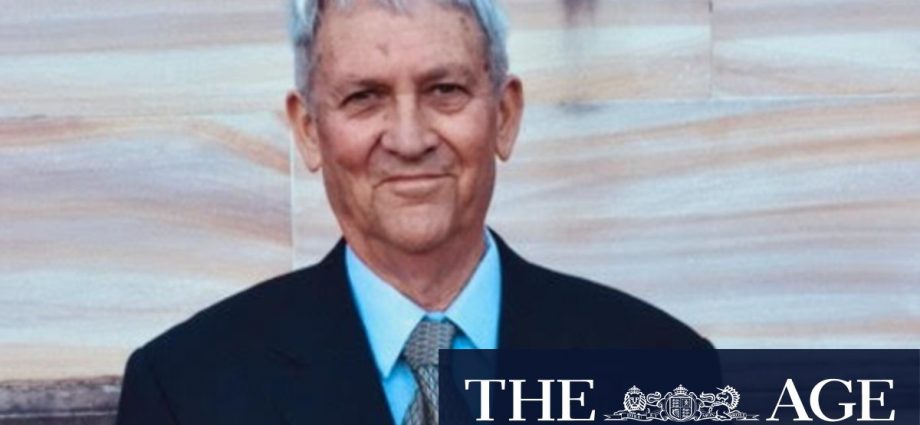Crombie made many films about tough, powerful, independent women at a time when there were very few directors with female lead protagonists.
While I believe Gillian Armstrong’s My Brilliant Career is an Australian masterpiece, I would place Caddie and Cathy’s Child alongside it. These films were groundbreaking in cinematically presenting a female perspective and portraying women navigating their own paths and asserting their voices.

Donald Crombie directing on the set of the 1976 classic Australian film Caddie.
The lead performances in these films, delivered by Helen Morse and Michele Fawden, are astonishing. Both actresses received the best actress AFI awards for their work, and I can sense Crombie’s empathy and compassion throughout their portrayals. He creates a striking balance of strength and dignity in these characters, making them relatable and compelling. They never appear as victims but rather as individuals in control of their destinies, unwavering in their pursuit of justice.
Crombie never met his father, a pilot for the RAF who was shot down in 1944 in the last big air attack by the English before the Americans took control of aerial warfare in Europe. He was brought up alone by his mother in Queensland, the two were extremely close, and it is this relationship that has always intrigued me about his work.
After graduating from NIDA, Crombie developed as a director by the many documentaries he made for Film Australia, and I think it led to him becoming one of our great social realist filmmakers. I always found similarities in his films to Mike Leigh and Ken Loach, focusing on minorities, underdogs, characters working against the system and filmed in this wonderfully observed and real style.
In 1974, Crombie made his first documentary drama Who Killed Jenny Langby. This achingly real portrayal of a woman’s struggle to survive was a critical and commercial success. Julie Dawson, despite having limited acting experience, delivered a powerful performance that earned her the AFI award for best actress. The film became the highest-rated drama on the ABC for several years.
Crombie’s remarkable talent lay in his ability to seamlessly transition between different genres while maintaining his distinctive voice as a filmmaker. He played a pivotal role in creating some of the finest Australian mini-series of the 1980s, including the raw and terrifying Cyclone Tracy and the deeply moving and personal Heroes about Operation Jaywick, a World War II forces raid on Japanese shipping in Singapore harbour by the Australian Z Special Unit.
In 1983, he made controversial thriller The Killing of Angel Street, a story of the disappearance of Juanita Neilson an activist against mass development in Sydney during the late 1970s. Crombie recalled a conversation with producer Tony Buckley, who said he had received a phone call warning the director: “He’s got young children, and he should be thinking a bit about what he’s doing.”
Despite this, he courageously proceeded to make the film, which premiered at the 32nd Berlin Film Festival and received an honourable mention. As someone who has also made films about challenging subjects, I deeply appreciate the difficult decision that Crombie made to balance the need to tell a story with the potential impact on his family.
That greatest challenge being a filmmaker is trying to balance the immense demands of a career with family, how to be present in both. Donald’s wife, Judith, was an enormous support and creative partner, there was a kind of seamless blend of the domestic with the creative in their house. I remember seeing half-finished storyboards next to the chopping board as he cooked his famously hot Thai dishes, opera playing through the house, endless films being screened and talked about, wonderful stories being shared and acted out. It was a fun place to be.
When daughter Fiona won the production design BAFTA for The Favourite and was nominated for an Oscar I congratulated Crombie; he cheekily replied: “Well, if you can’t be nominated yourself, then breed one who can.” He was immensely proud of her, but it made me reflect on how underestimated his contribution to the Australian film industry has been. I consider him a pioneer, a true innovator and visionary, a crucial part of Australia’s new wave movement and a filmmaker who made deeply truthful films about what it is to be Australian.
I recently listened to an audio recording by Crombie made just before he died in which he said: “How did a child destined to live in central Queensland end up attending NIDA and directing films?”
It is something I have often thought about in my career. Film seemed so unattainable, something that happened in a place far away and to others more fortunate. He brought it closer to me, shared a path, and, for that, I am eternally grateful.
Crombie was a giant of the industry, and his cinema should continue to inspire the future filmmakers. He is survived by wife Judith and children David, Fiona, Alistair and Peter.
Justin Kurzel is an Australian director and made films such as Snowtown, Macbeth, True History of the Kelly Gang, Nitram and recently The Order.


